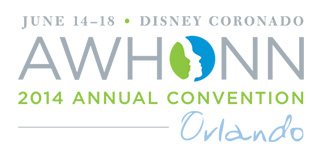C
Implementing Use Of Donor Breast Milk In The Well Baby Population, It's Not Just For The NICU Any More
Title: Implementing Use Of Donor Breast Milk In The Well Baby Population, It's Not Just For The NICU Any More
- Discuss the history of donor milk programs.
- Review the components necessary to establish a donor breast milk program.
- Recognize the health and economic benefits of donor milk usage in the well baby population.
Donor Breast Milk has been used in Neonatal Intensive Care units since the 1990’s and has been proven to increase infant survival rates. Since our hospital instituted the use of human donor milk in our NICU in 2011 it has seen a significant improvement in the incidence of necrotizing enterocolitis and survival rates. Exclusive breast milk feeding is now recognized as a Perinatal Core measure by the Joint Commission and is defined as infants receiving no other nutrition than breast milk including the use of human donor milk. Therefore, in order to provide the best evidence based feeding practices, UT Southwestern has begun the process of making pasteurized donor milk available to our well newborn population for infants requiring medical supplementation of breastfeeding,
Proposed change:
Implementing the use of donor milk in our well infant population was a result of best practices research, education of staff and patients. Ethical considerations for the use of a limited resource as well as cultural practices involving the use of donor milk were also explored, discussed and adopted.
Implementation, outcomes and evaluation:
Implementation: By applying ethical and evidenced based best practices principles to the process our staff implemented the controlled use of donor breast milk on the well-baby unit.
Innovative practices for this change included: Creation of consent and information for parents; Criteria for use; Cost vs benefit analysis; Procurement of Hmbana approved source of donor milk and implementation of proper storage for donor milk supplied.
Implications for nursing practice:
Exclusive breast milk feeding is known to be the best practice for all babies. Infants in the well newborn population also may need supplementation of breastfeeding due to hypoglycemia, excessive weight loss, hyperbilirubinemia and other associated factors. By offering donor milk as a means of supplementing these infants we preserve the health benefits associated with exclusive breastfeeding while also decreasing risk of readmission and potentially preventing an extended length of stay.
Keywords: Donor milk, exclusive breast milk feed, supplementation
